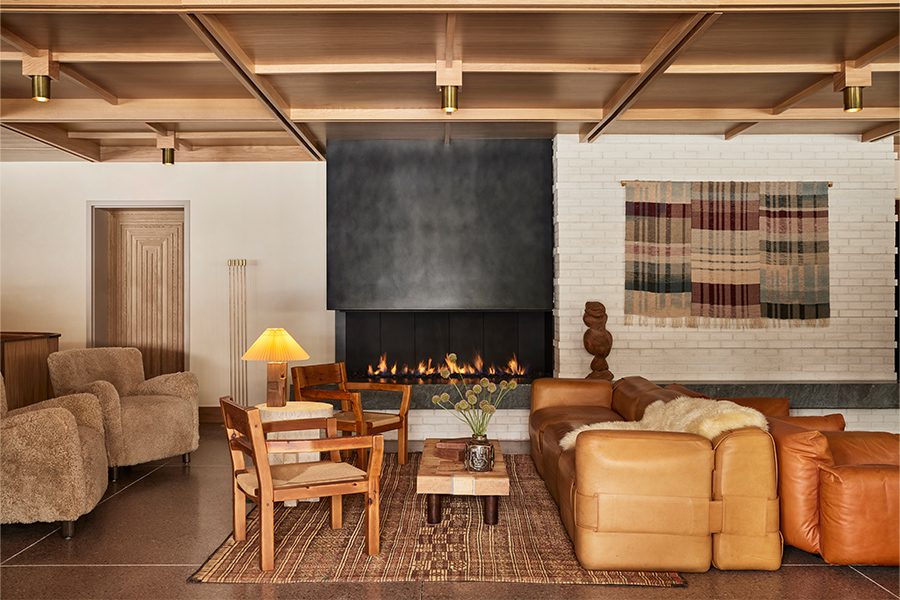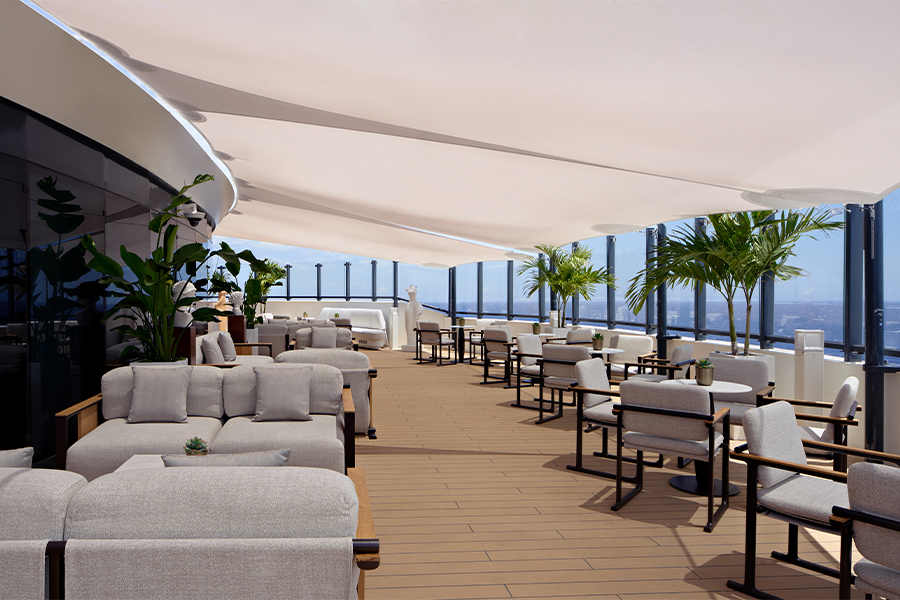Hotels are beginning to address the needs of neurodivergent travelers, museums come up with alternative ways to attract visitors, and the NYU Investment Conference wraps up with hoteliers feeling optimistic. All that and more in this week’s Five on Friday.
Hotels find ways to cater to neurodivergent travelers

Atlantis Aquaventure, located between the Atlantis the Royal (shown) and Atlantis the Palm resorts, was the first waterpark in the Middle East to earn the Certified Autism Center designation from IBCCES; photo courtesy of Kerzner International
Hotels and travel agencies, like Magical Storybook Travel, are working to cater to neurodivergent travelers, writes Bloomberg. According to the International Board of Credentialing and Continuing Education Standards (IBCCES), 78 percent of families or individuals with autism forgo traveling because it can be too overwhelming. The first step is earning certifications, including those from IBCEES’ Certified Autism Center or Advanced CAC designations, which are offered to help employees anticipate the needs of neurodivergent travelers. Properties like the Atlantis the Palm in Dubai; JW Marriott Desert Springs Resort and Spa in Palm Desert, California; and Legoland Korea Resorts have adopted similar certifications. Some hotels even offer smart amenities, like cue cards and fidget tools, to help travelers work through stressful moments. Something as simple as creating a walk-through video of the property can help families prepare for their stay.
As attendance dwindles, museums try a “radical” approach

Installation view of Mark Bradford: Pickett’s Charge at the Hirshhorn Museum and Sculpture Garden in Washington, DC, 2017; courtesy of the artist and Hauser & Wirth; photo by Cathy Carver
With dwindling attendance, museums are seeking alternative ways to attract visitors, writes The New York Times. Some of those steps include featuring newer and lesser-known artists, catering to local audiences, and adding technological enhancements to attract visitors. Hirshhorn Museum and Sculpture Garden in Washington, DC, for example, has seen visitors increase by 50 percent in 2018 and 2019. Part of the reason is director Melissa Chiu’s emphasis on what she calls radical accessibility, which means innovations like the Hirshhorn Eye—a mobile video guide that shows artists talking about their works—and the six-episode TV show called The Exhibit: Finding the Next Great Artist. She credits the initial attendance bump to the 2017 show Yayoi Kusama: Infinity Mirrors—the Instagrammable work saw 1.1. million visitors that year. Another big initiative is overhauling the sculpture garden that sits on the Mall to feature 50 percent more artworks from the collection and triple the amount of seating.
ICYMI: NYU Investment Conference recap

A rendering of Marriott’s new midscale offering; rendering courtesy of Marriott International
The 46th annual NYU International Hospitality Industry Investment Conference took place this week, and the outlook among hoteliers was cautious optimism. A CoStar recap notes that the rapid recovery from the pandemic has passed, but hoteliers are fine with that. Deals—though not easy—are still getting done. Yet, challenges remain top of mind, including inflation, worker shortages, expenses, rising taxes, and more, writes Lodging magazine. Among the biggest announcements was Marriott’s tease of its new midscale brand. Currently working under the name Project Mid-T by Marriott, the new brand will be focused on conversion opportunities in the U.S. and Canada.
Minsuk Cho unveils the 2024 Serpentine Pavilion

An aerial view of the 2024 Serpentine Pavilion designed by architect Minsuk Cho of Mass Studies; photo by Iwan Baan
Located in central London’s Kensington Gardens, Seoul-based architect Minsuk Cho, founder of Mass Studies, has created a star-shaped shelter organized around a circular void for the 2024 Serpentine Pavilion, on view until October. The five structures—meant to offer people many choices to come together—vary in size, height, and form. The Play Tower, for instance, is clad in an orange netscape, while the Auditorium—topped with an angular pitched roof, it’s the largest of the spaces—will host performances and talks. “Many of these greats that I admire so much—artists and architects—over the past 22 editions have explored ways of bringing people together, a form of generosity through architecture,” Cho told Dezeen. “In our case, a way to bring together was to provide many choices.”
Read Hospitality Design’s May/June issue

The best in show projects winner the MOLLIE Aspen, designed by Post Company; photo by Nicole Franzen
The May/June issue of Hospitality Design is out now, celebrating the winners and finalists of our 20th annual HD Awards program in both projects and products, as well as our four individual honorees, including Hotel Company of the Year: Standard International; Designer of the Year: Nicole Hollis; HDAC Awards of Excellence recipient: Darius Davie; and the HD/West Elm Student Product Design Competition winner Ilyra Carlton. This year saw close to 1,300 submissions—the most in both products and projects in the history of the HD Awards. It was no easy feat, but our 14 judges were up to task, helping to narrow down the entries to the 130-plus finalists found in the magazine and which we fêted during an awards gala in Las Vegas, held in conjunction with this year’s HD Expo + Conference. Read all about them here! And mark your calendars: Submissions for the 21st annual awards will open in November.



